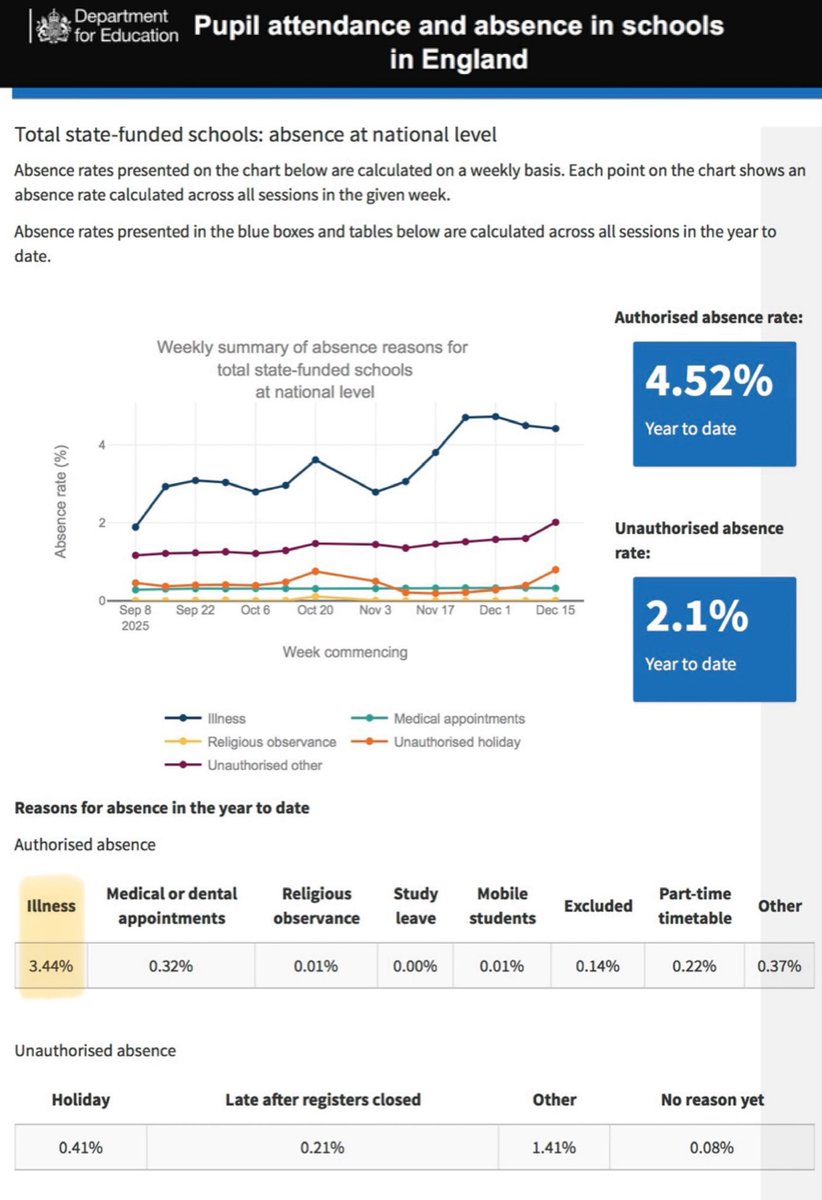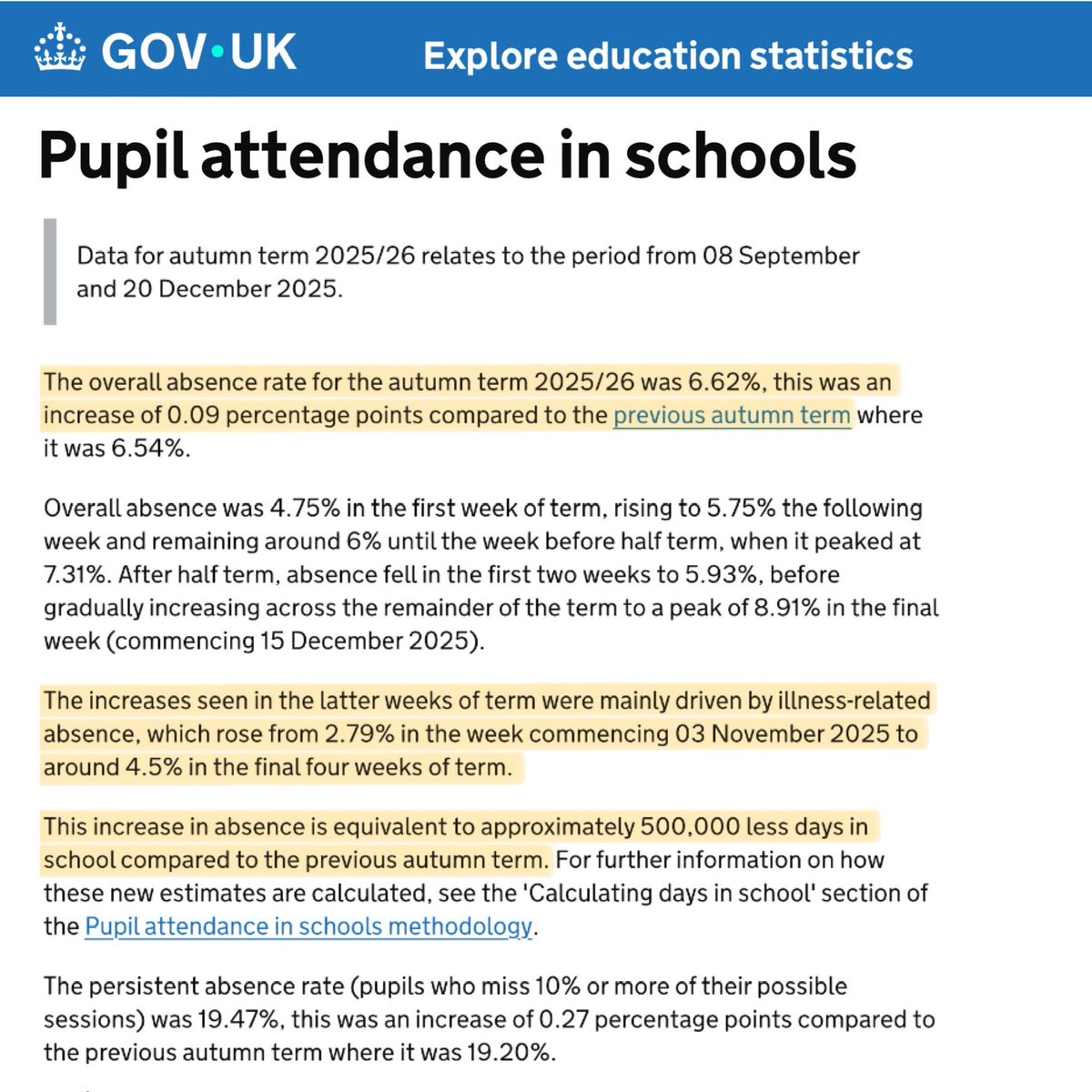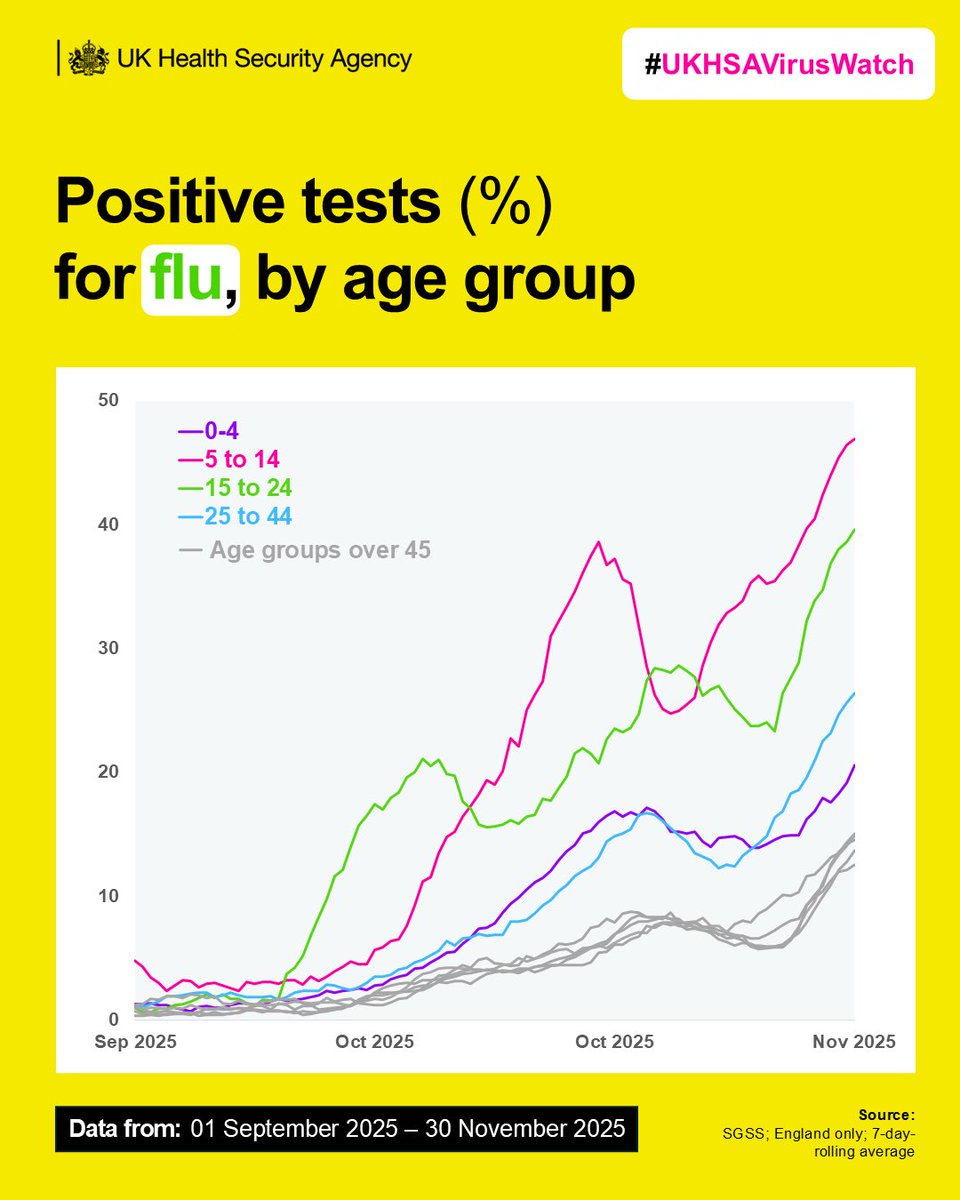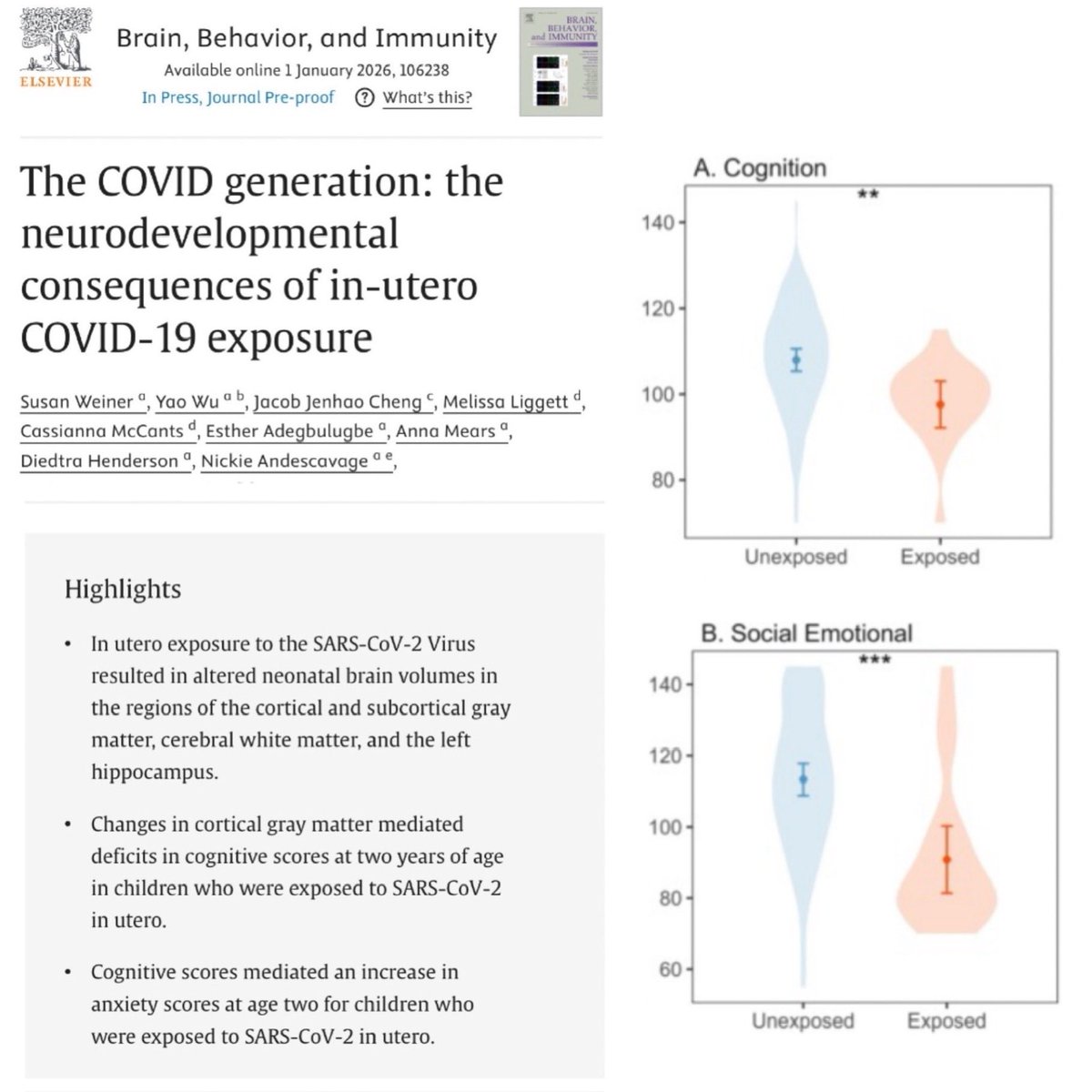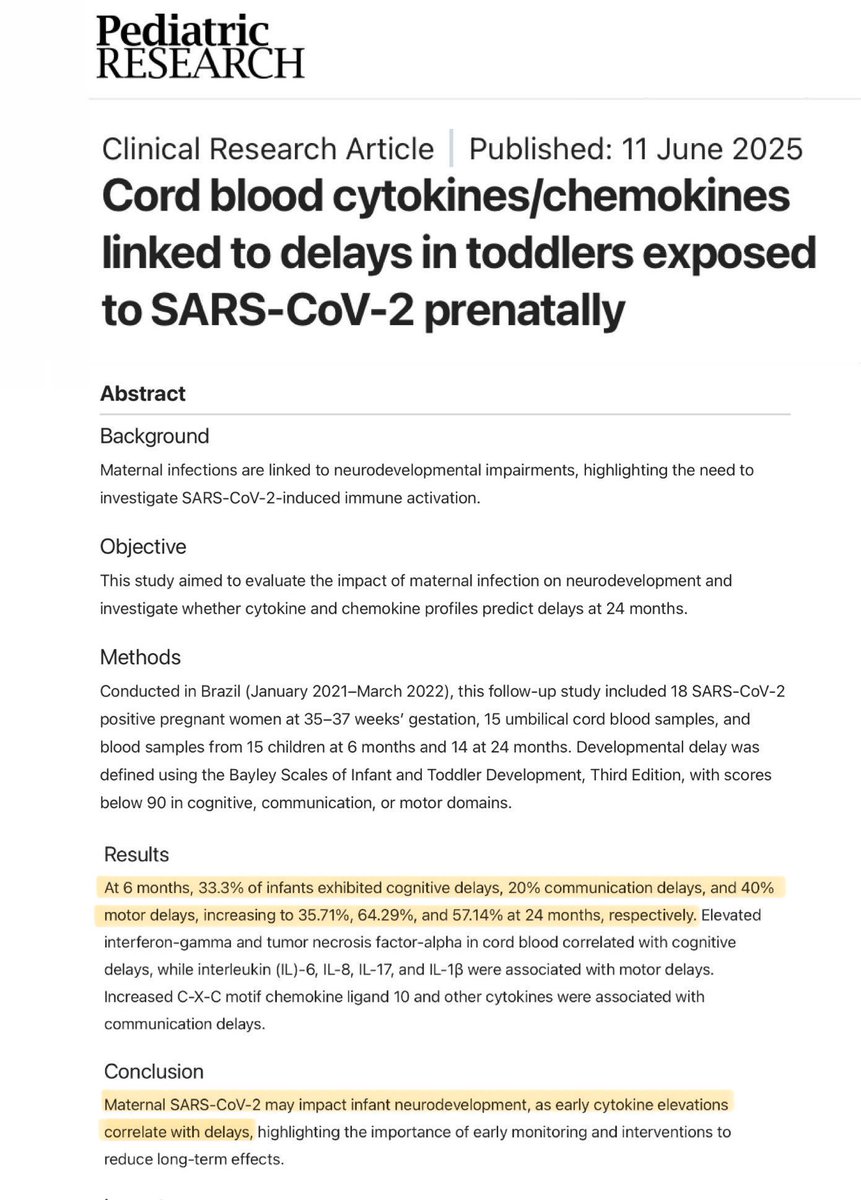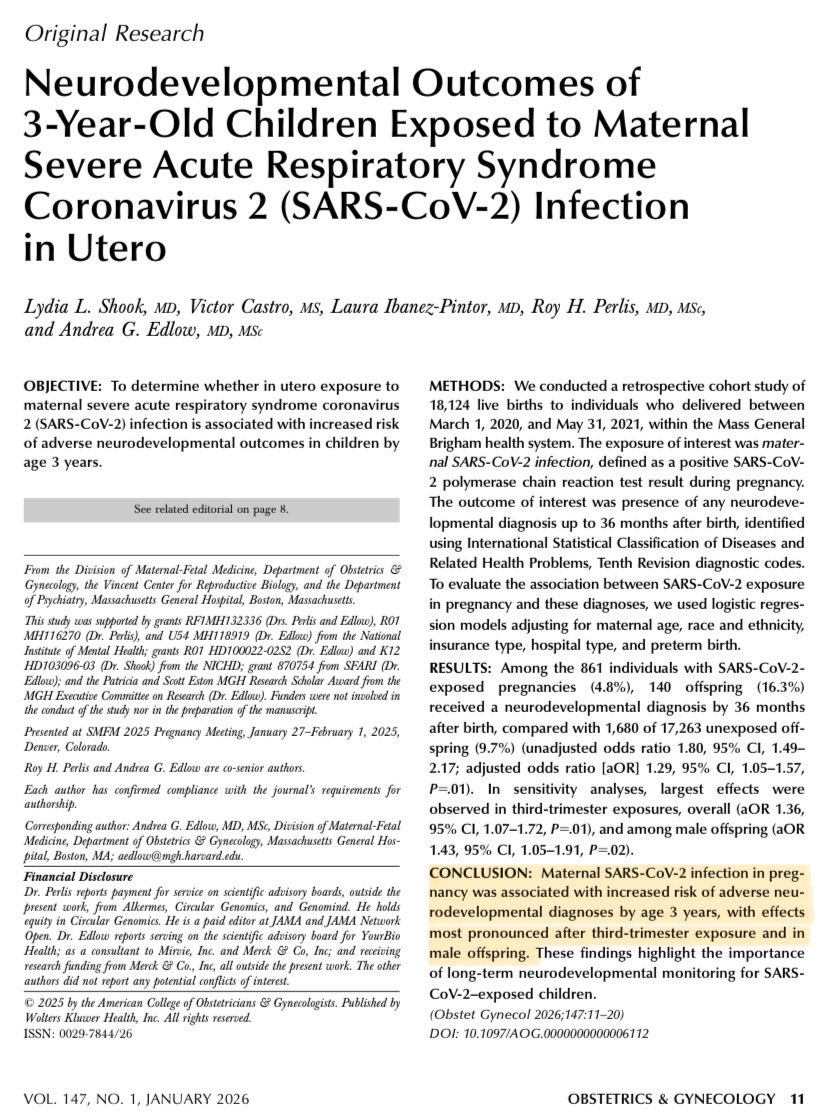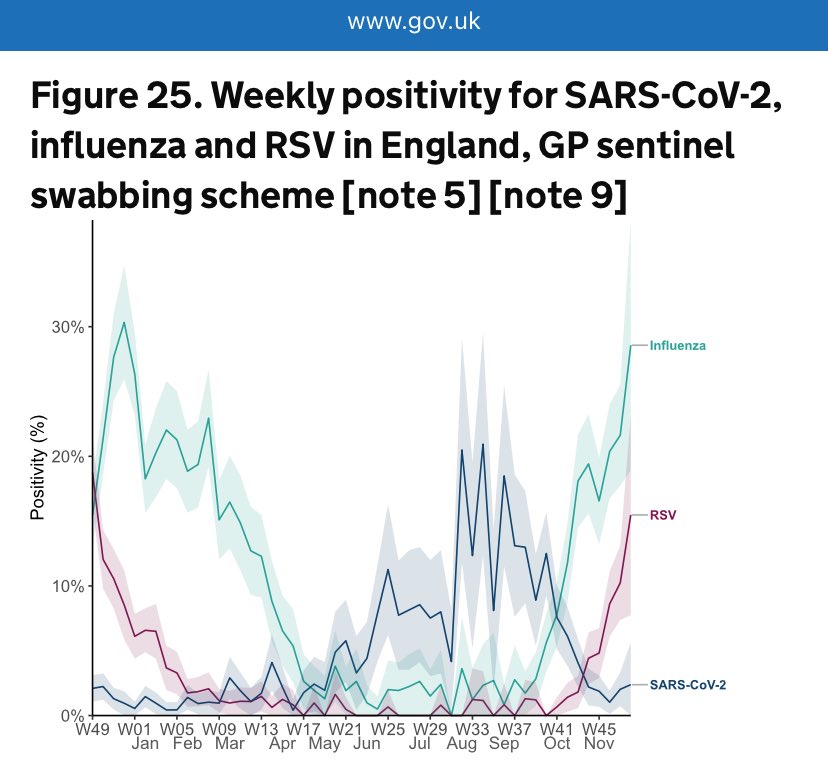💚 The Green Party have published a new policy calling for urgent action to tackle the ongoing waves of Covid which are causing so much harm to the nation’s health & economy.
Huge thanks to everyone involved in making this happen.
@AdrianRamsay @carla_denyer @ZackPolanski
Huge thanks to everyone involved in making this happen.
@AdrianRamsay @carla_denyer @ZackPolanski
https://twitter.com/grnsagnstcvd/status/1859876838518255868
The Green Party are absolutely right.
We cannot continue to ignore Covid.
Covid has not gone away, nor has it settled into a seasonal pattern.
The endless waves continue to batter the nation throughout the year - and even in the dips, remains at a relatively high level.
We cannot continue to ignore Covid.
Covid has not gone away, nor has it settled into a seasonal pattern.
The endless waves continue to batter the nation throughout the year - and even in the dips, remains at a relatively high level.

Last Winter, the government briefly reinstated their ‘gold standard’ ONS Covid Infection Survey…
The data revealed that, at the peak of last Winter’s wave (Dec 2023), 1 in 24 people across England were infected with Covid.
Sadly, the survey has not been reinstated this winter.
The data revealed that, at the peak of last Winter’s wave (Dec 2023), 1 in 24 people across England were infected with Covid.
Sadly, the survey has not been reinstated this winter.

All this additional illness, on top of the usual respiratory viruses like flu & RSV, is having a huge impact on economic productivity across the nation.
According to the IPPR, the cost of staff sickness soared by 41% to £103 BILLION in 2023 (compared to 2018).
According to the IPPR, the cost of staff sickness soared by 41% to £103 BILLION in 2023 (compared to 2018).

You can read the full IPPR report at the link below.
This report clearly shows how the increased level of illness amongst employees is having a HUGE cost to businesses.
And the majority of this cost is caused by employees attempting to work when sick.
ippr-org.files.svdcdn.com/production/Dow…
This report clearly shows how the increased level of illness amongst employees is having a HUGE cost to businesses.
And the majority of this cost is caused by employees attempting to work when sick.
ippr-org.files.svdcdn.com/production/Dow…

One of the workplaces most affected by this is HEALTHCARE settings…
The chart below shows sickness absence rates for all NHS staff from Jan 2011 - May 2024.
It’s clear to see just how much more sickness absence there is since the start of the pandemic.
(Chart: @1goodtern)
The chart below shows sickness absence rates for all NHS staff from Jan 2011 - May 2024.
It’s clear to see just how much more sickness absence there is since the start of the pandemic.
(Chart: @1goodtern)

SCHOOLS are feeling the impact too.
Nearly half of all pupil absences are due to illness…
…and pupil absences purely due to illness are still 40% higher than the pre-pandemic rate.
Nearly half of all pupil absences are due to illness…
…and pupil absences purely due to illness are still 40% higher than the pre-pandemic rate.

But short-term illness is only the tip of the iceberg.
The other big problem is long-term illness resulting from Covid infections.
The latest GP-Patient Survey (July 2024) shows that 4.6% of the population now have LONG COVID.
That equates to 3.1 MILLION people across the UK!
The other big problem is long-term illness resulting from Covid infections.
The latest GP-Patient Survey (July 2024) shows that 4.6% of the population now have LONG COVID.
That equates to 3.1 MILLION people across the UK!

As explained in this superb article, Long Covid is a complex multi-systemic disease with sequelae across almost all organ systems.
It can affect people of all ages, and over 90% of LC cases occur in those who only had a mild initial infection.
science.org/doi/10.1126/sc… x.com/zalaly/status/…
It can affect people of all ages, and over 90% of LC cases occur in those who only had a mild initial infection.
science.org/doi/10.1126/sc… x.com/zalaly/status/…

According to the latest ONS Covid Infection Survey (March 2024), 29% of those currently suffering from Long Covid reported that their symptoms started within the last 12 months.
In other words, nearly A THIRD of people suffering from Long Covid are NEW cases since March 2023.
In other words, nearly A THIRD of people suffering from Long Covid are NEW cases since March 2023.

And, of those affected by Long Covid, data from both the UK and the US suggests that roughly 1 in 5 will be SEVERELY debilitated, with their ability to undertake basic day-to-day activities limited a LOT.
Tragically, many of these people end up bedridden for much of the time.
Tragically, many of these people end up bedridden for much of the time.

Now what happens if we combine this 1 in 5 estimate for those severely affected with the GP-Patient survey data which showed that 3.1M (4.6%) across the UK now have Long Covid…
20% of 3.1M = 620,000
That’s an estimate of the number of people SEVERELY impacted by Long Covid.
20% of 3.1M = 620,000
That’s an estimate of the number of people SEVERELY impacted by Long Covid.
Now guess how many people are no longer able to work DUE TO LONG-TERM SICKNESS since the start of the pandemic?
Wow! Look at that… it’s almost exactly the same number!
630,000 more working age people are not working due to long-term sickness since the start of the pandemic.
Wow! Look at that… it’s almost exactly the same number!
630,000 more working age people are not working due to long-term sickness since the start of the pandemic.

This finding is further supported by the UK LOCOMOTION study which revealed that:
🚨28% of those suffering from Long Covid have been forced to stop working altogether.
🚨A further 23.5% of Ling Covid sufferers had had to reduce their working hours.
evidence.nihr.ac.uk/alert/how-much…
🚨28% of those suffering from Long Covid have been forced to stop working altogether.
🚨A further 23.5% of Ling Covid sufferers had had to reduce their working hours.
evidence.nihr.ac.uk/alert/how-much…

A recent Economist Impact analysis estimated that:
🚨More than 251.8 MILLION work hours may be lost due to long Covid in 2024.
🚨The economic cost resulting from this is estimated to be over US$15.5 BILLION - that’s equivalent to 0.5% of the UK’s GDP.
impact.economist.com/perspectives/h…
🚨More than 251.8 MILLION work hours may be lost due to long Covid in 2024.
🚨The economic cost resulting from this is estimated to be over US$15.5 BILLION - that’s equivalent to 0.5% of the UK’s GDP.
impact.economist.com/perspectives/h…

An IFS report published earlier this year showed that:
🚨Overall spending to support people with long-term health conditions had increased from £65 billion in 2020-21 to £78 billion in 2023-24.
That’s a 20% rise in just 3 years…
ifs.org.uk/publications/c…
🚨Overall spending to support people with long-term health conditions had increased from £65 billion in 2020-21 to £78 billion in 2023-24.
That’s a 20% rise in just 3 years…
ifs.org.uk/publications/c…

And the official forecasts suggest that spending to support people with long-term health conditions will continue to grow by a further £22 BILLION (28%) over the next five years…
…reaching a staggering £100 BILLION by 2028-29.
…reaching a staggering £100 BILLION by 2028-29.

The official forecast shows the rise in spending to support people with long-term health conditions levelling off over the next 5 years.
I hope that’s true, but I’m not so optimistic that this is going to happen, unless something major changes in terms of prevention…
I hope that’s true, but I’m not so optimistic that this is going to happen, unless something major changes in terms of prevention…
An article in The Times recently summarised some of these shocking stats:
🚨By 2029, HALF of all Universal Credit claims will be for LONG-TERM HEALTH CONDITIONS (up from 31% in 2023).
Read the full article here:
thetimes.com/uk/politics/ar…
(Paywall free: archive.ph/GYeAM)
🚨By 2029, HALF of all Universal Credit claims will be for LONG-TERM HEALTH CONDITIONS (up from 31% in 2023).
Read the full article here:
thetimes.com/uk/politics/ar…
(Paywall free: archive.ph/GYeAM)

It is high time for the government to step up & start taking Long Covid seriously.
That’s why it’s such brilliant news that @TheGreenParty have put together this policy calling on the government to IMMEDIATELY introduce simple measures to protect us all from Covid.
💚💚💚💚💚💚
That’s why it’s such brilliant news that @TheGreenParty have put together this policy calling on the government to IMMEDIATELY introduce simple measures to protect us all from Covid.
💚💚💚💚💚💚

• • •
Missing some Tweet in this thread? You can try to
force a refresh


